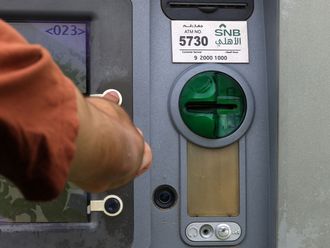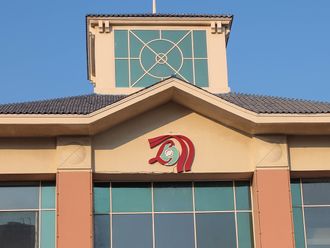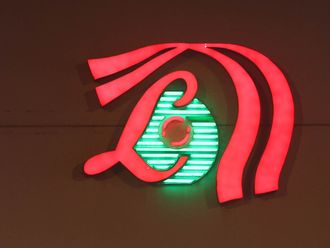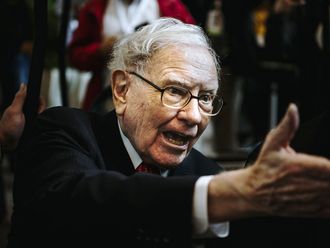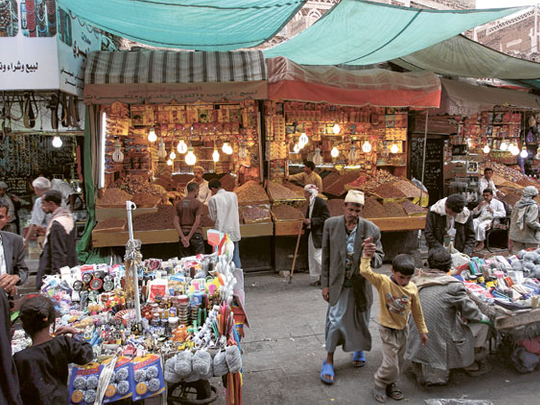
Sana'a: Over months of political turmoil, attacks on electricity plants and oil pipelines have left Yemen's economy on the edge of collapse, with the most damaging strike carried out in retaliation for a US counterterrorism raid.
Against a backdrop of street protests and military clashes, the country is grappling with electricity blackouts, rising food prices, and fuel shortages so dire that ordinary Yemenis can spend days in lines for gasoline.
In March, tribesmen blew up the main pipeline in Marib province, the legendary birthplace of the Queen of Sheba and home to roughly half of Yemen's oil reserves. The attack was carried out by a powerful tribal leader, Ali Al Shabwani, whose son was killed in a US airstrike in May 2010.
The pipeline helps funnel crude to the nation's main oil terminal in the southern port city of Aden for export and to be refined into gasoline. With Yemen bogged down in a popular uprising, the pipeline remains ruptured, with Shabwani and his heavily armed tribesmen refusing to allow the government access to the site until he gets justice for the airstrike, Yemeni officials said. Around Sana'a, a sprawling, dun-coloured capital nestled among jagged mountains, the consequences are apparent, including water shortages, high transportation costs and soaring food prices.
Suffering people
Forty per cent of the nation's population lives on less than $2 a day. Lines stretch for miles at gas stations that sell fuel at government-subsidised prices. On the black market, fuel costs three times as much. At some gas stations, gunfights have erupted.
"The leader has no right to do this," said Yahya Saleh Mohammad, 27, an accountant in Sana'a. He had been waiting in line for gas for two days in his green SUV; he was still a mile from the gas station, a wait that he estimated would take one more day.
"Yes, [Shabwani] has suffered from the airstrike, but how can he make all the people suffer?" he said. Many restaurants and stores are shuttered. Beggars have multiplied. At night, large portions of Sana'a are enveloped in darkness; electricity is available only for a few hours a day. The attacks on power plants and pipelines have continued, carried out from both sides of a widening political divide.
"Initially, these were anti-government tribes who wanted to place pressure on the regime," said Adil Abdul Gani, an official in the Electricity Ministry. "Now, however, they are pro-government ones attacking the plants because they want to show that the state cannot function without Ali Abdullah Saleh," the longtime president. The contributing role of the US airstrike in the fuel shortage is an indication of the growing fragility of Yemen's economy during the five-month-old revolt.
It also highlights the potential for US policies to have harmful, if unintended, consequences in this politically brittle nation, where Washington has stepped up counterterrorism activities in recent months, with plans for the CIA to work closely with the US Joint Special Operations Command in carrying out attacks with armed unmanned aircraft.
Many Yemenis also view the economic crisis through the prism of politics, blaming the government or the opposition for their woes.
That, many analysts and diplomats fear, could spawn more unrest; rising unemployment and poverty could drive disaffected youths toward militancy at a time when Al Qaida in the Arabian Peninsula and other groups are trying to take advantage of Yemen's political vacuum.
Rising poverty
"Everybody is lost," said Saif Al Asali, a former fin-ance minister. "And the politicians on both sides don't seem to care what happens to the people." Saleh's supporters say the Joint Meeting Parties, a coalition of six opposition groups, is attacking the electricity plants as well as blocking roads to prevent trucks from hauling oil to cities and plants.
"We know these are terrorist groups with links to the JMP," said Abdul Basat Al Kumaim, an official in the Ministry of Industry and Trade.
"They know they can't take power democratically, so they want to steal the power through destructive actions. They want to show that the government is not able to regain control," Hisham Sharaf Abdullah, the minister of industry and trade, said..




